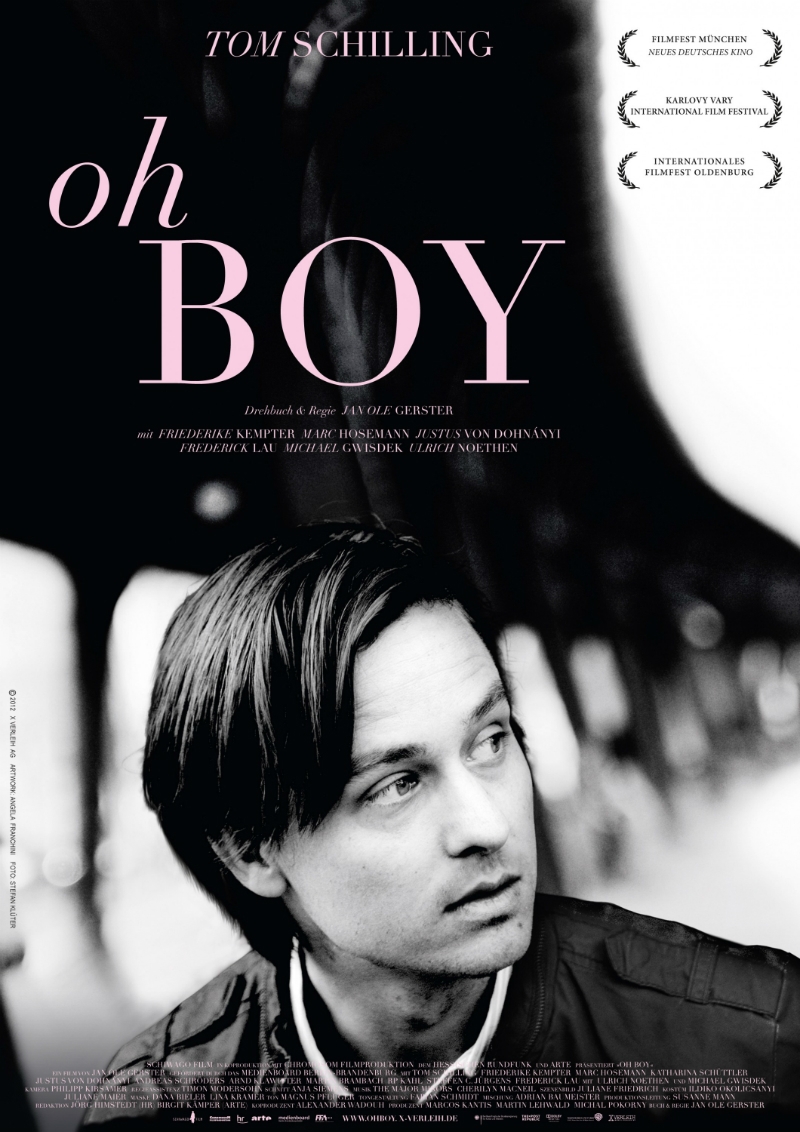Oh Boy

Jan Ole Gerster’s film was certainly worth making; for obvious reasons the slacker’s story is so rarely well told. However, while it is graceful with psychology and evocatively shot, it falls in several places, happily saved in the viewing by the former virtues. The ruminative night-time sequence is particularly good.
One has little sympathy, though, for its roguish jazz soundtrack, or its laboured comedy, or its tendency to work in clichés; these are bad enough in themselves, but they are made worse by the problem of Gerster’s story. Slackers, needless to say, don’t tend to do much. Gerster has to get his one out and doing things, showing us things, and so we come to scenes merely as symbolic set-ups – here is someone fixed on the past, here is someone who waited too long for the future, here in short, dear viewer, are the points. This would only be a minor flaw if the points were not couched in clichés. The disappointed father we know, the girlfriend pleading coquettishly with a hastily leaving lover – check.
The Woody Allen-ish humour (“why can’t I get any decent coffee?” being a running gag) never quite convinces, not only because it is only really there to hold off the threat of the subject matter becoming drab and maudlin (this doesn’t actually happen – Gerster is, after all, a better director than that), but because this style of humour requires the slacker to reach out and criticise – the appeal of the character is his passivity.
Broadly though it’s a very good film, independent of its slightly heavy moments it remains funny and almost light-hearted; it holds its disparate tones well, and Justus von Dohnányi has one brilliant scene – so good in fact that one almost misses his character when his point is made and he does not recur. It is touching and brilliant in some places, and its few errors do not ultimately sink it. Its point about the burden of history, about the burden of culture, is magnificent – while Nazis may seem a well-worn and almost tedious subject, what they stand for in this film, beyond their own crimes, is the burden of responsibility – particularly as it is borne by the hero, who is not, thankfully, all slacker.
Who do we be now? What is our purpose? The film manages, by the use of history, to ask this question collectively, and make the story evoke feeling beyond Niko’s trite problems. The following will sound melodramatic (as will almost any rhetorical question sharing a paragraph with the Nazis), but it is the film’s true question: who are we going to be?
Stephen Powell
Oh Boy premiered at the Edinburgh International Film Festival in June 2013, it is now showing at the ICA on 17th and 18th January 2014.
Watch the trailer for Oh Boy here:























Facebook
Twitter
Instagram
YouTube
RSS